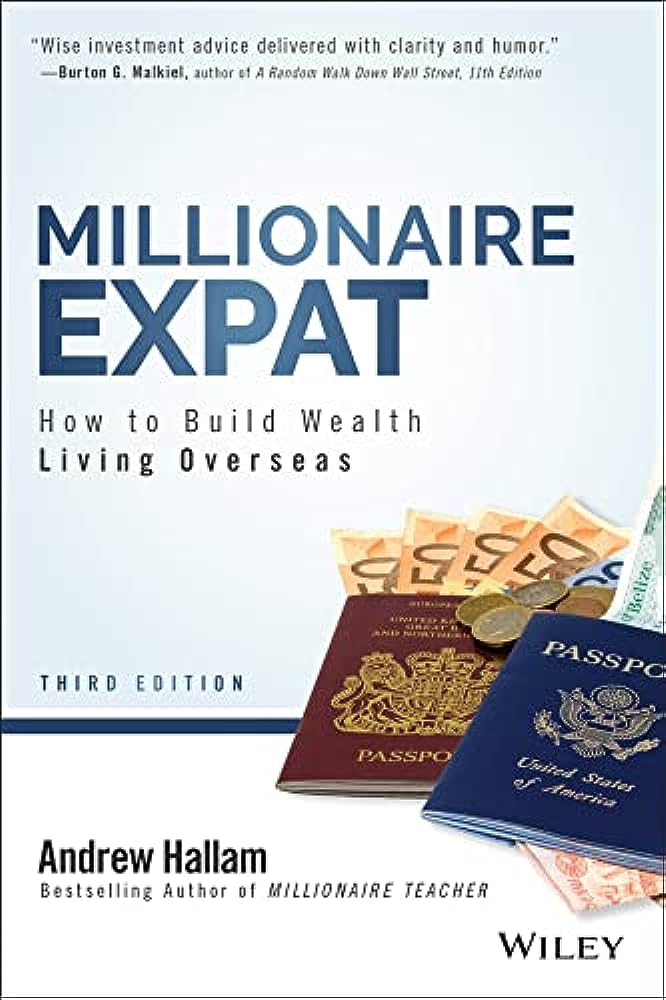
In an increasingly globalized world, expatriates face numerous legal challenges when living abroad. From navigating immigration laws to understanding tax obligations and property rights, expats must be well-versed in a range of legal matters to ensure a smooth transition and compliance with local regulations.
This article explores seven critical expat legal matters, offering a comprehensive overview of:
- Immigration
- Taxes
- Property rights
- Marriage and family law
- Employment laws
- International laws
- Local legal resources
Stay informed and empowered as you embark on your expat journey.
Immigration Laws
When considering a move to a new country, expats must navigate the complex landscape of immigration laws. Understanding the immigration policies and visa requirements is crucial for a smooth transition and integration into the new country.
Immigration policies vary greatly between countries, with some nations having strict entry requirements, while others have more lenient regulations. Expats should familiarize themselves with the specific visa options available, such as work visas, student visas, or family visas, and ensure they meet the necessary criteria.
It is essential to research and comply with the immigration laws of the destination country to avoid legal issues and ensure a successful relocation. Consulting with an immigration lawyer or utilizing reputable resources can provide expats with the information they need to navigate the immigration process effectively.
Taxes
Navigating the complexities of tax laws is another crucial aspect for expats to consider when relocating to a new country.

Tax planning becomes essential to ensure compliance and minimize financial burdens.
Expats should familiarize themselves with the tax regulations of their host country, as each jurisdiction has its own set of rules and requirements.
One important consideration is understanding the available tax exemptions and deductions that may be applicable to expats.
These exemptions can vary depending on factors such as residency status, income sources, and the duration of stay in the new country.
By taking advantage of these exemptions, expats can significantly reduce their tax liabilities and maximize their financial freedom.
Seeking professional advice from tax experts who specialize in international taxation is highly recommended to ensure compliance and optimize tax planning strategies.
Property Rights
Expats must also consider the issue of property rights, as it is a critical aspect that requires careful attention and understanding. When it comes to property ownership, expats should be aware of the laws and regulations in their host country. Understanding the process of acquiring and transferring property is essential to protect one's investment.

It is crucial to ensure that land titles are legitimate and properly registered to prevent any disputes or legal issues in the future. Expats should also be aware of any restrictions or limitations imposed on foreign ownership of property in their host country.
Consulting with a local attorney who specializes in property law can provide valuable guidance and ensure that expats make informed decisions regarding property ownership. By taking these precautions, expats can enjoy the freedom and security that comes with owning property in a foreign land.
Marriage and Family Law
In the realm of marriage and family law, expats must navigate the complex legal landscape to ensure their rights and responsibilities are upheld.
This includes understanding the intricacies of prenuptial agreements and the potential implications they may have on property division in the event of a divorce.
Expats must also be aware of the laws regarding child custody disputes, as these can vary significantly from one jurisdiction to another.
It is essential for expats to familiarize themselves with the legal framework of their host country and seek professional advice when necessary to protect their interests.
Employment Laws
Understanding employment laws is crucial for expatriates to navigate the legal requirements and protect their rights in their host country. Expatriates may need to obtain work permits or visas in order to legally work in a foreign country. These permits often have specific requirements and limitations, such as the type of work allowed and the duration of the permit. It is important for expatriates to familiarize themselves with these regulations to avoid any legal complications.

Additionally, expatriates should be aware of their termination rights in their host country. Employment laws vary from country to country, and it is essential to understand the rights and protections afforded to employees. This includes understanding the grounds for termination, notice periods, severance pay, and any other relevant regulations.
International Laws
When living as an expatriate, understanding international laws is crucial due to the legal jurisdiction differences and cross-border legal implications that may arise.
International laws govern various aspects such as immigration, taxation, property rights, and more, impacting the rights and responsibilities of individuals living abroad.
It is essential to be well-informed and compliant with these laws to ensure a smooth and legally sound experience as an expatriate.
Legal Jurisdiction Differences
The legal jurisdiction differences between countries pose unique challenges for expatriates. When moving to a new country, expats often have to navigate unfamiliar legal systems and adapt to different cultural norms. Here are some key aspects to consider:
Cultural assimilation: Expatriates may need to understand and respect the cultural values and practices of their host country. This includes adhering to local customs and traditions, which can vary significantly from their home country.
Language barriers: Language plays a crucial role in legal matters. Expats may encounter difficulties understanding legal documents, communicating with local authorities, or seeking legal representation. Overcoming language barriers is essential to ensure their rights and interests are protected.

Legal systems: Each country has its own legal system, with unique laws, regulations, and procedures. Expats must familiarize themselves with the legal framework of their host country to navigate legal processes effectively and avoid any legal complications.
Navigating legal jurisdiction differences requires expats to be proactive in learning and adapting to new legal systems, respecting cultural differences, and seeking appropriate legal advice to ensure their rights are protected while enjoying their newfound freedom abroad.
Cross-Border Legal Implications
Expatriates must navigate cross-border legal implications, including international laws, when relocating to a new country. One of the key aspects expatriates need to consider are their contractual obligations. Moving to a different jurisdiction may require them to review and potentially renegotiate their existing contracts to ensure compliance with local laws.
It is crucial to understand the legal framework of the host country to avoid any legal disputes or breaches of contract. Additionally, expatriates must also protect their intellectual property rights when operating across borders. This involves understanding the intellectual property laws of the country they are moving to and taking necessary steps to safeguard their creations, inventions, or trademarks.
Seeking legal advice and conducting thorough research can help expatriates navigate these cross-border legal implications effectively.
Local Legal Resources
Expat residents can access a variety of local legal resources to navigate the complexities of immigration, taxes, property rights, and more.
When it comes to visa requirements and work permits, expatriates can rely on the following local legal resources:

Immigration authorities: These government agencies specialize in handling visa applications, extensions, and renewals. They provide guidance on the necessary documentation and legal requirements for obtaining and maintaining a valid visa.
Employment offices: These institutions assist expatriates in obtaining work permits and offer information on the legal aspects of employment, including contract negotiations and workplace rights.
Legal aid organizations: These non-profit organizations provide free or low-cost legal assistance to expatriates, helping them understand their rights and navigate any legal issues that may arise.
Frequently Asked Questions
How Can I Apply for a Work Visa in a Foreign Country?
To apply for a work visa in a foreign country, you need to research the specific requirements of that country's immigration laws. This typically includes providing documentation such as a job offer, proof of qualifications, and a visa application form.
What Are the Tax Implications for Expats Who Have Investments in Multiple Countries?
Tax implications for expats with investments in multiple countries can be complex and require careful planning. Investment diversification across borders may trigger reporting requirements, potential double taxation, and the need for professional advice to navigate international tax laws.
Can Expats Purchase Property in a Foreign Country and Are There Any Restrictions?
When considering expats purchasing property abroad, it is important to understand the legal considerations, any potential restrictions, and the financial implications involved. These factors vary from country to country and require careful research and expert guidance.
What Are the Legal Requirements for Getting Married as an Expat in a Foreign Country?
The legal requirements for getting married as an expat in a foreign country include obtaining the necessary documentation, such as passports and birth certificates, and following the marriage certificate procedures set by the destination country.

Are There Any Specific Employment Laws That Expats Should Be Aware of When Working Abroad?
Expats working abroad should be aware of work permit requirements and employment contract regulations. These laws vary depending on the country of employment and can include restrictions on working hours, minimum wage, and employment termination procedures.
 Travel AdviceDigital NomadsExPat LivingTravel Content Creation HacksPlaces to VisitAdventure TravelPrivacy PolicyTerms And Conditions
Travel AdviceDigital NomadsExPat LivingTravel Content Creation HacksPlaces to VisitAdventure TravelPrivacy PolicyTerms And Conditions
